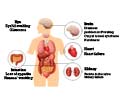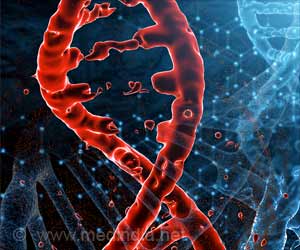Anti-cancer drug is well tolerated and effective in patients with relapsed AL amyloidosis when used with appropriate pre- and post-infusion medications.

‘AL amyloidosis is a disease related to bone marrow cancer; multiple myeloma. AL amyloidosis is considered life threatening due to amyloid fibril deposition in various organs of the body leading to organ failure.’





According to the researchers, daratumumab infusion in myeloma patients can cause infusion related reactions in almost half of the cases so it was important to study this drug with appropriate premedications in AL amyloidosis. Twenty-two patients with previously treated AL amyloidosis were enrolled in a prospective study. The majority of the patients had received high-dose melphalan and stem cell transplantation (HDM/SCT) and/or treatment with a proteasome inhibitor. The researchers found daratumumab to be safe, tolerable and successful in treating these patients. In addition, due to its favorable toxicity profile, they believe daratumumab is an attractive treatment option for patients with advanced cardiac involvement with AL amyloidosis.
"Only one dose of daratumumab can decrease the amyloidogenic precursor immunoglobulin light chain protein rapidly and can lead to reversal of organ dysfunction in patients with AL amyloidosis," explained corresponding author and principal investigator of this clinical trial Vaishali Sanchorawala, MD, director of the Boston University/Boston Medical Center Amyloidosis Center.
Despite therapeutic advances in the treatment of relapsed AL amyloidosis, it remains a challenging disease to treat. "Effective alternative therapies are needed both for patients ineligible for HDM/SCT and for those with persistent or progressive disease following such treatments," added Sanchorawala, who also serves as professor of medicine at Boston University School of Medicine.
Source-Eurekalert












